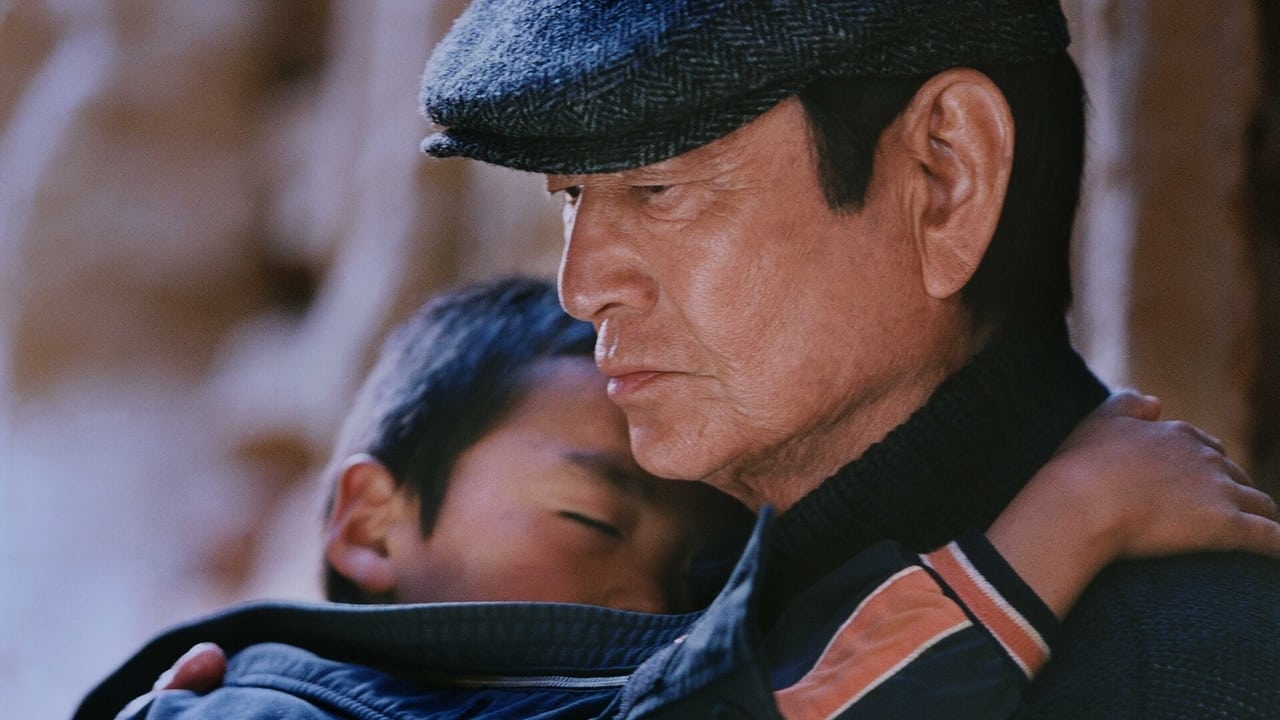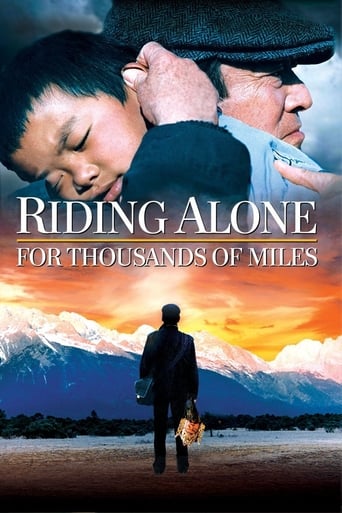

Overrated and overhyped
... View Moreeverything you have heard about this movie is true.
... View MoreIt's an amazing and heartbreaking story.
... View MoreIt's funny, it's tense, it features two great performances from two actors and the director expertly creates a web of odd tension where you actually don't know what is happening for the majority of the run time.
... View MoreToo much emotions and pain in a single person, a story that gives a lesson of life. Takata is extremely herd by his wife's death that he plunges into loneliness and no-contact with his son Kenichi who is dying of cancer at a hospital, refusing to see his father. A journey that helps Takata rediscover the value of family through the grace of Yang Yang, a kid whose father is imprisoned for an ironic act of defense. The movie is all about self analysis and forgiveness; Takata stops been emotionless after he was told about Kenichi's death, but specially after having experienced the cultural values of a foreign country. The narrative is the only fact I felt a bit ambiguous; however, the real language that must be spoken in this film is the language of feelings and expressions.
... View MoreI like how this movie compares two cultures that historically hated each other. Remaining unbiased to the justness of each, Zhang explores a variety of contrasting aspects between the Chinese and Japanese cultural norms. He leaves us with an insightful appreciation of both. On one side we have the Chinese valuation of family and community; on the other side we witness the Japanese regard for independence. We are shown both Japanese strength of composure and Chinese openness to expression.Takakura does an amazing job of acting like he's not acting. By this I mean Mr. Takata's battle with the suppression of his emotional expression. Takakura's challenge was to obviously exist in anguish while showing signs to no one. Throughout the movie you can see the torment in his eyes while he struggles to shroud it from his hosts. Needless to say he can't always hide it (otherwise Takakura would of had it a little easier) and the times that he slips up and makes the sad face are the times that reassure us of his humanity. In fact, many times it takes just that to remind ourselves of the very same thing.
... View Morethis was one movie that really got my attention. the title speaks for itself and it had me interested in watching it. the movie made me want to stick around and find out what happens next. its a bit of a sad story but it does have its funny moments. in a way i could relate to the story and the characters, because i have seen things like this occur in my life and in others. many of the scenes were perfectly shot, i wouldn't know how else portray those moments. i would definitely recommend this movie for many to watch. like i said, its a movie many could relate to, as did i. the movie portrays the difference between the two cultures, and the way they are portrayed is fascinating. the actors do a very well job in acting. i really enjoyed the ending. it starts of slow but then it gets interesting as the movie goes on and the viewer finds out information about the characters. emotions are expressed deeply in the movie, another reason the viewer is captured in it. it a great adventure movie with a journey of understanding. the audience is put on a ride that has no stops until the end of the movie. two words i would use to describe this movie are understanding and love.
... View MoreRiding Alone for Thousands of Miles is a film that illustrates the agony that a father experiences when he tries to reunite with his dying son. Ken Takakura, who played the father, is an emotionally reserved Japanese man who, in order to express his love for his dying son, travels to China from Japan to film a song and dance performance by Li Jianima, an ancient musical artist. Yahoo Zhang, the director,conveys the will and dedication of the father as he travels a long distance to carry out his son's dying wish of capturing Li Jianima on tape. The father has difficulty capturing this artist on tape when he receives news that Li Jianima is in prison. The father wins the audience over with his profound acting that illustrates the devotion and commitment he possesses for his son. Through the use of color, Zhang captures the essence of the two contrasting cultures, Japan and China. Zhang uses soft blue and steel colors to show the sophisticated and modern culture of Japan. In contrast, Zhang provides the audience with bright vivid red and yellow colors to express the liveliness and traditional behaviors of the Chinese culture.
... View More